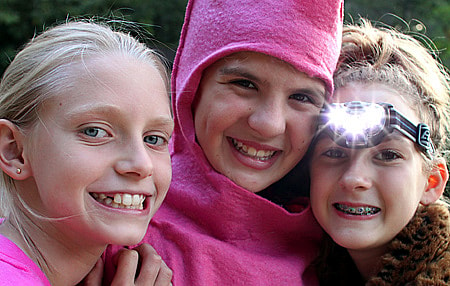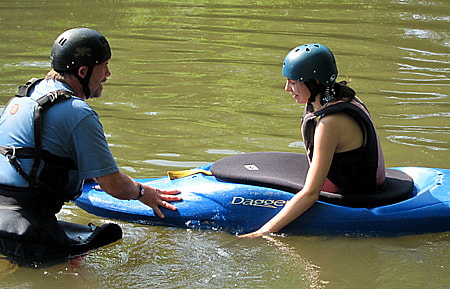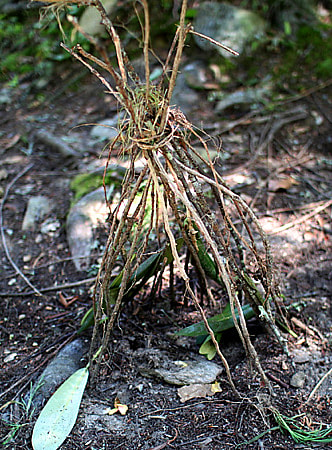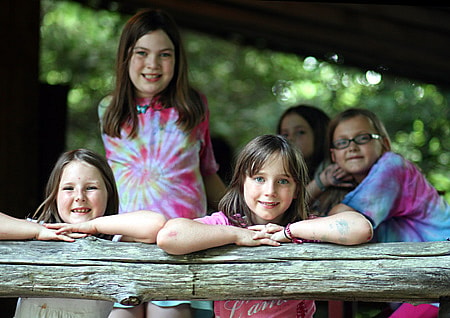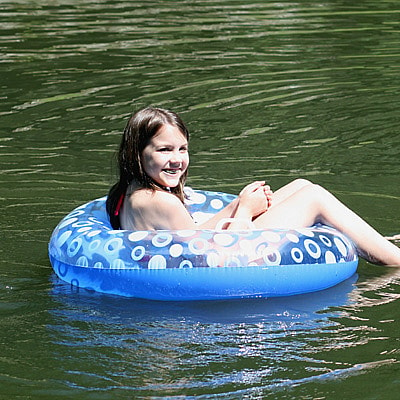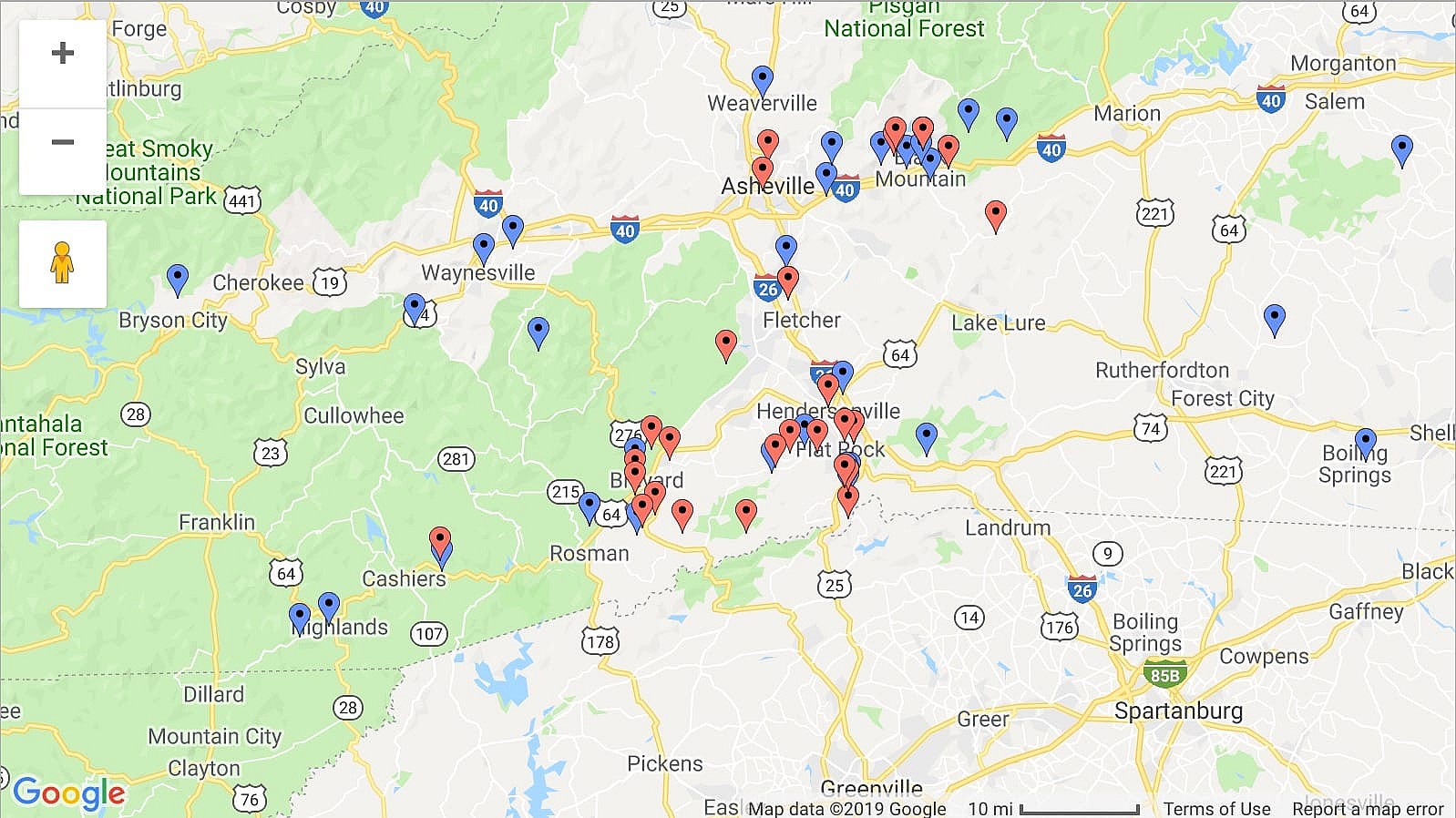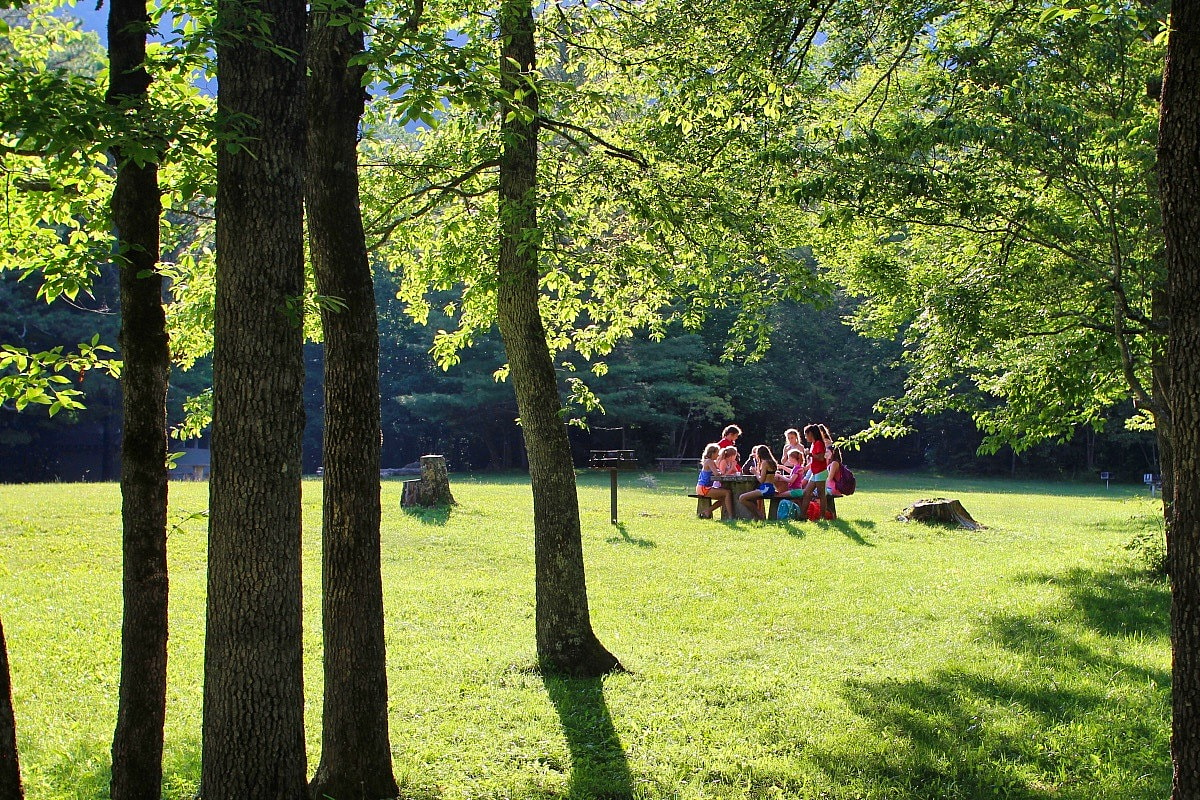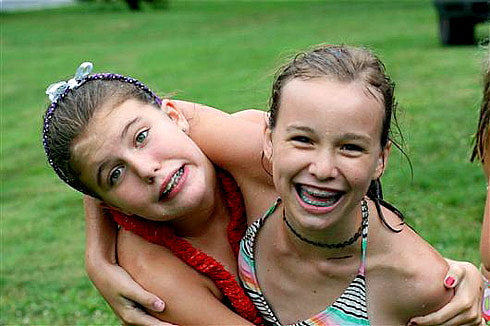For quite a while now we’ve talked about how Rockbrook is “a place for girls to grow,” how a sleepaway camp experience can be so instrumental in the lives of young girls, helping them socially, personally, and even physically. Being at Rockbrook is plenty of fun, of course, but it’s also formative in really important ways. Here’s an article we published back in February about how camp helps children grow.
The adventure activities at Rockbrook provide a good example of this. They are ideally suited to providing the right balance of challenge and success, in an active, friendly and supportive context. They are just right for inspiring campers and fostering their self-confidence and social skills. Take today’s kayaking trip down the French Broad River. The girls handled the rapids, stuck together as a group encouraging each other, and conquered the technical aspects of catching eddies, ferrying, and reading the river. There were international campers on the trip too (Belgium and Russia), giving the girls even more chances to learn from each other. Getting out of camp for a river trip like this is often a highlight of a girl’s camp experience, perhaps because it’s a more focused moment where she can feel good about her abilities and relationships. Or, perhaps it’s just a good time!
Our traditional Rockbrook “camp song” includes this line— The rosy mist of the morning, Veil it anew at dawn, Like a fairyland of beauty, Where friendships so true are born. This line is inspired by the notion that Rockbrook is a “fairyland of beauty,” that all of its natural beauty, the mosses, rocks, creeks, ferns and wildflowers for example, are the work of fairies. All of us at Rockbrook, being in this “wonder-full” place, can easily imagine friendly spirits working their magic all around us. This photo shows a “fairy house” a few of the girls have built near hiker’s rock. Gathering leaves, sticks, moss and other found bits of nature, they’ve been building several of these houses. Some have bathtubs, beds and even a set of “monkey bars” and a swing! Others were made mostly of rocks and colorful pebbles. What fun to search the woods with your friends for special, enchanted fairy house building materials! And, what a nice surprise to turn the corner in camp and encounter one of these special creations.
For dinner tonight Rick made us a feast of baked tilapia, roasted red potatoes, steamed broccoli (along with our salad bars of fresh fruits and veggies), along with Alison’s homemade brownies for dessert. After dinner, Jane (who by the way is majoring in fine art photography at The Corcoran College of Art and Design in Washington, DC) grabbed the camera and announced an impromptu twilight activity for the girls: a silly glamor photo shoot. She encouraged folks to just dress up and come out to the hill to get their picture taken. Dressed in true Rockbrook spirit (i.e. super silly) mostly the Juniors got excited about the idea, and Jane captured a bunch of really great shots.

